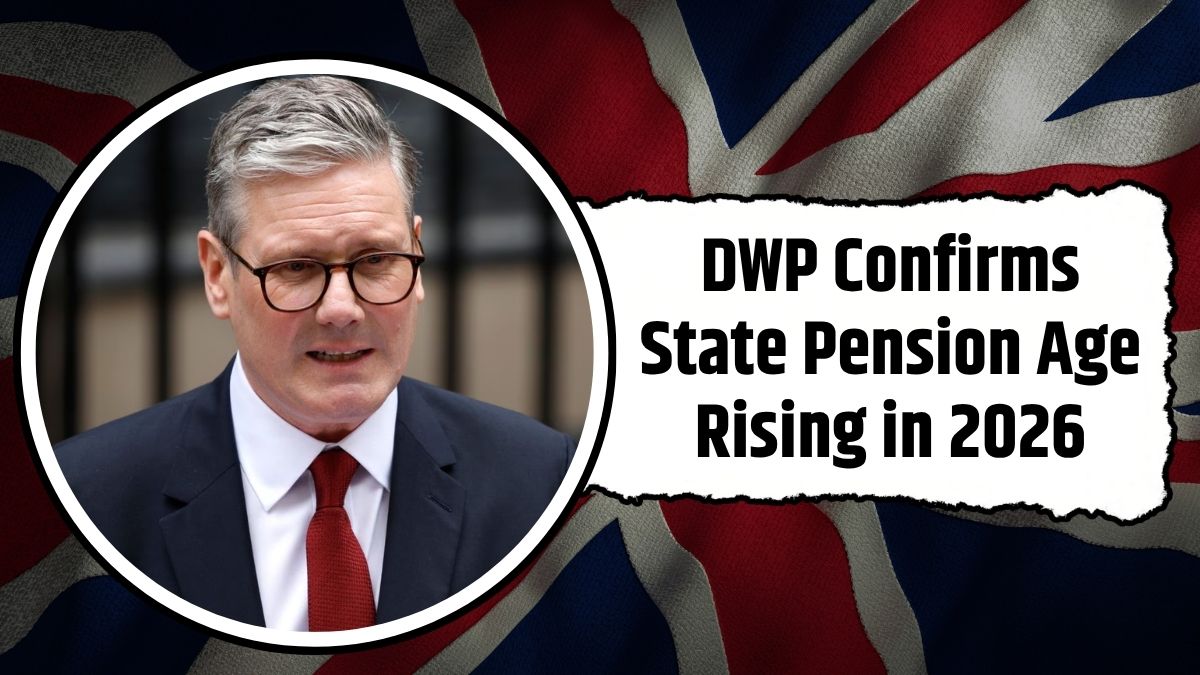If you’re in your early 60s or planning to retire soon, major changes to the UK State Pension system are about to impact you. Starting April 2026, the Department for Work and Pensions (DWP) will begin raising the State Pension age from 66 to 67. The change will be introduced gradually and will affect millions of people born between April 6, 1960, and April 5, 1977.
The New State Pension Rules 2026 are part of the government’s strategy to make the pension system financially sustainable in the face of rising life expectancy. For those approaching retirement, these updates mean it’s more important than ever to understand when you’ll qualify and how to adjust your retirement plans accordingly.
State Pension Age Is Increasing
Under the new policy, the UK government is raising the State Pension age from 66 to 67. This phased change will take place between April 2026 and March 2028, depending on your exact date of birth.
| Category | Details |
|---|---|
| Effective Period | April 2026 to March 2028 |
| New Pension Age | Gradual increase from 66 to 67 |
| Who Is Affected | Born between April 6, 1960 – April 5, 1977 |
| Reason for Change | Rising life expectancy, pension system pressure |
| Triple Lock Guarantee | Remains active |
| Approval Needed? | Yes, via Parliament |
| Impact | Retirement plans may need revision |
To avoid surprises, you should check your State Pension age using the government’s online calculator and explore your retirement options early.
Why the State Pension Age Is Changing
The government says the decision to increase the pension age is based on demographic and economic factors. People in the UK are now living longer and healthier lives, which means they’re spending more years drawing pensions.
While this is positive from a quality-of-life perspective, it also means increased pressure on the pension system. If people continue to retire at 66, the costs could eventually outpace available public funds.
By gradually increasing the age, the government aims to ensure that the State Pension remains sustainable for future generations—without raising taxes significantly or reducing pension amounts.
Who Will Be Affected by the Rule Change?
If you were born between April 6, 1960, and April 5, 1977, this change will apply to you. Here’s how the age adjustment will roll out:
- Those born closer to 1960 may see a slight increase—perhaps becoming eligible at 66 years and a few months.
- Those born later in the range, closer to 1977, will likely have to wait until they turn 67.
If you’re already over 66, these new rules won’t affect your payments. But if you’re younger, it’s essential to check your projected eligibility date and start adjusting your retirement budget and income strategy.
How This Impacts Retirement Planning
With the State Pension age shifting, many soon-to-be retirees will need to re-evaluate their financial plans.
If you were planning to retire at age 65 or 66, you’ll now need to account for the extra months or even a full year before receiving State Pension payments. This means:
- Working longer to close the income gap
- Accessing private pensions earlier
- Tapping into savings or investments
- Revising retirement timelines
The government offers a State Pension forecast tool to estimate your future payments and determine your eligibility date. Use it to review how these changes will affect your financial outlook.
The Triple Lock Policy Still Applies
There’s one silver lining: the Triple Lock Guarantee remains in place. This policy ensures that your pension payments increase annually by whichever is highest:
- 2.5%
- The rate of inflation
- Growth in average UK earnings
This guarantees that your pension value keeps pace with the cost of living, even if you receive it a bit later.
However, there’s a catch. As State Pensions increase, more retirees may cross the personal tax-free allowance threshold and be liable to pay income tax on a portion of their pension. It’s something future retirees should factor into their post-retirement tax planning.
How to Check Your State Pension Age
To avoid confusion, the DWP offers an online pension age calculator on the GOV.UK website. This tool lets you:
- Confirm your official State Pension age
- View when you can start claiming
- Estimate your retirement income
Checking your date now can help you take early financial actions—such as contributing more to a private pension or delaying withdrawals to maximise payouts.
Considerations for Early Retirees
If you were hoping to retire early, these changes might force a rethink. With the State Pension payout delayed, early retirees will need to rely on other income sources, such as:
- Workplace pensions
- Personal pension pots (SIPPs or ISAs)
- Rental income or investments
Speak to a financial adviser to structure your income in a way that avoids large tax penalties and supports your lifestyle through the pension gap years.
Advice for Future Retirees
If you’re currently in your 50s or early 60s, now is the time to:
- Check your pension age
- Boost contributions to workplace or personal pensions
- Review your budget for pre-pension years
- Consult a financial planner to adjust timelines
- Consider part-time work or phased retirement to ease the transition
Don’t wait until 2026—start preparing now to ensure a smoother retirement journey.
FAQs
Q1. What is changing in the UK State Pension age from 2026?
The State Pension age will gradually rise from 66 to 67 between April 2026 and March 2028.
Q2. Who is affected by the pension age increase?
Anyone born between April 6, 1960, and April 5, 1977 will experience a delay in their pension eligibility.
Q3. Why is the pension age going up?
Because people are living longer, the government is adjusting the pension age to keep the system financially sustainable.
Q4. How will this affect my retirement planning?
You may need to work longer, rely on private income, or adjust your budget until your State Pension begins.
Q5. Is the Triple Lock still active?
Yes, your pension will still rise annually based on inflation, wage growth, or a minimum of 2.5%—whichever is highest.


